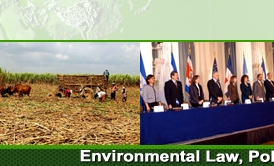|
|
|
|
|
|
|
|
||
|
|
|
||
 |
 |
 |
|
|
|
|
||
|
|
|
|
|
|
|
|
||
|
|
|
||
 |
 |
 |
|
|
|
|
||
|
Barbados
Main Water Issues
Despite its high amount of rainfall, the geological makeup of Barbados—a “coral island”—is such that there are no rivers capable of providing potable water and 100% of the country’s need is supplied by groundwater. According to the UNEP, Barbados “has chosen to adopt an integrated water resources management approach, in line with international trends and best management practices.” Agriculture on the island is somewhat dependent on rainfall, however, and there have been crop failures during the dry season.
This information gathered from a national report created by the United Nations Environmental Program, which can be found here: http://www.cep.unep.org/programmes/amep/GEF-IWCAM/Barbados/bdos.htm
Water Legislation
Created: 1980 Abstract: The Act provides for the constitution of the Barbados Water Authority as a body corporate. The 38 Sections of the Act are divided into 8 Parts: Preliminary (I); Establishment, Constitution and Functions of the Authority (II); Administration (III); Water and Sewerage Works (IV); Finances of Authority (V); Accounts (VI); Miscellaneous (VII); Transitional Provisions (VIII). The Schedule provides for regulation of the Board pursuant to section 7[2]. The Crown may acquire land for any of the Authority's purposes (sec. 12(1)).
Other Important Environmental Legislation
National Conservation Commission Act Created: 1985 Description: Established the National Conservation Commission to, among other things, “conserve the natural beauty, topographic features, historic buildings, sites, and monuments of Barbados.”
|
©
2005 Office for Sustainable Development and Environment -
Organization of American States. All
Rights Reserved. |